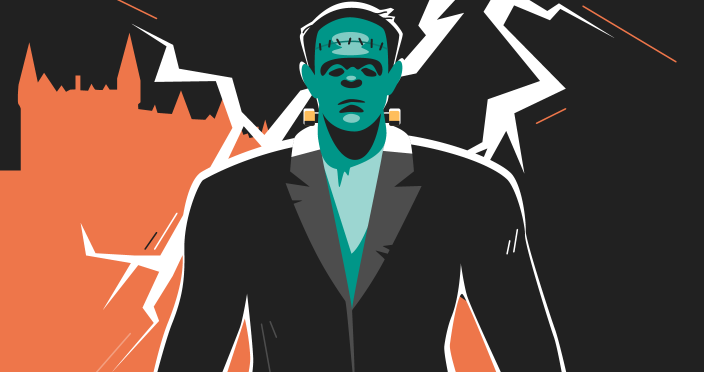Published more than 200 years ago, Frankenstein by Mary Shelley remains highly relevant today due to the timeless questions it explores. Frankenstein characters—Victor, the Monster, Robert Walton, Elizabeth Lavenza, and others—highlight themes of isolation, dehumanization, revenge, and scientific ambition.
If you’re looking for a Frankenstein character analysis, you’re in the right place! In this article, you’ll find Frankenstein character map and family tree. We’ve also included physical descriptions and character sketches of Victor Frankenstein, Henry, the Monster, and others, along with the most significant quotes from each character.
🕸️ Frankenstein Character Map
Below is a Frankenstein character map that describes the novel’s main characters and their relationships.
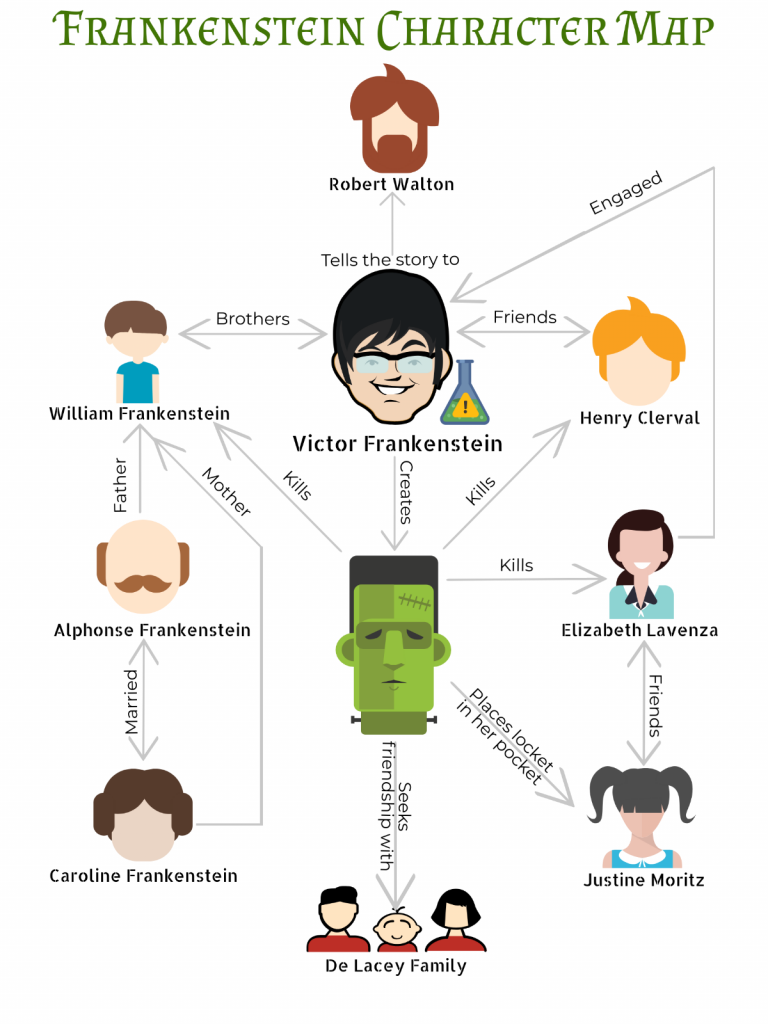
👨 Victor Frankenstein
Who is Victor Frankenstein?
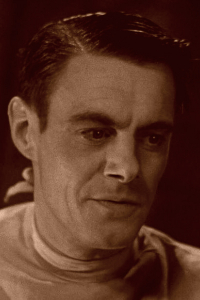
Victor Frankenstein is the main character of the novel. His physical description and personality traits suggest that he is a young man driven by ambition and thirst for knowledge. Through scientific experiments, he created a Monster, whom he later accused of killing his entire family. Seeking revenge on the creature he gave life to, Victor turns into a monster himself.
Victor Frankenstein Character Traits
At the beginning of the book, Frankenstein appears to be an enthusiastic young man, fascinated with science and secrets of nature. He grew up in a prosperous Swiss family, surrounded by love and care. Unlike other children, he did not want to spend time on entertainment. To all amusements, he preferred studying laws of natural philosophy. With time, such seemingly positive character traits as curiosity and love of science turned into a real madness, as Frankenstein became obsessed with the idea of creating a living creature from a dead matter. He succeeded in this enterprise and managed to give life to the Monster, who eventually destroyed him.
Frankenstein’s character analysis suggests that his ambitions and passion for knowledge caused his downfall. Victor’s experiments were prompted not so much by the desire to make the discovery for the benefit of mankind, but by his own vanity. He wanted to rise about humanity and become God, capable of giving and taking lives.
He created a living being, but he failed to hold himself accountable for what he had done. He turned away from the creature in the first minutes of its life. From that moment on, Victor was no longer a virtuous character. He demonstrated his irresponsibility and cowardice. Victor’s selfishness resulted in the Monster growing to hate him and the entire human race altogether. Unable to find compassion in the world of men, the Monster took revenge on Victor and killed all his family.In turn, Dr. Frankenstein isolated himself from the world and devoted his life to revenging the Monster. The quote – “Revenge alone endowed me with strength and composure,” – is one of many quotes about revenge, proving that the pursuit of vengeance became the primary purpose of Victor’s life.
Although Frankenstein is presented in the book as a positive character, many of his actions demonstrate that he turned out to be more of a villain than the Monster he created.
Famous Quotes by Victor Frankenstein
No human being could have passed a happier childhood than myself. My parents were possessed by the very spirit of kindness and indulgence. We felt that they were not the tyrants to rule our lot according to their caprice, but the agents and creators of all the many delights which we enjoyed.
Frankenstein, Victor Frankenstein, Chapter 2
Learn from me, if not by my precepts, at least by my example, how dangerous is the acquisition of knowledge and how much happier that man is who believes his native town to be the world, than he who aspires to become greater than his nature will allow.
Frankenstein, Victor Frankenstein, Chapter 4
One of the phenomena which had peculiarly attracted my attention was the structure of the human frame, and, indeed, any animal endued with life. Whence, I often asked myself, did the principle of life proceed?
Frankenstein, Victor Frankenstein, Chapter 4
👹 Frankenstein’s Monster
Who is the Monster in Frankenstein?
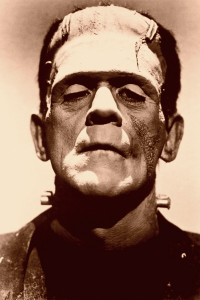
The Monster is a creature assembled by Frankenstein from dead pieces. Despite his outward ugliness, he turned out to be actually kind and sensitive. Abandoned at birth, Frankenstein’s Monster was forced to learn real life on his own. People despised and feared him for his appearance. Their attitude turned him into a beast and made him seek revenge on his creator.
Frankenstein’s Monster Character Analysis
Although tall and enormously strong, the Monster came to life helpless and confused. He did not know good from evil, could not talk, and had no understanding of his own self. Through trial and error, he learned that he was very different from others and that people would never accept him. Prejudiced humanity hated the Monster for his ugliness, while the creature’s only dream was to love and be loved.
One might wonder – what is Dr. Frankenstein’s Monster named? It is noteworthy that the creature Frankenstein managed to animate through a mysterious chemical experiment does not have a name. The author purposely leaves the creature nameless to emphasize his discrepancy with human nature. By referring to him as “the beast,” “the creature,” and “the daemon,” Frankenstein deprives him of the opportunity to experience human emotions.
Whereas in fact, the Monster is much more humane than Victor and many other people. He is capable of love and compassion. Among many of his quotes about love, there is one in which he explains to Victor how from a sensitive creature, he turned into a beast, “I was benevolent; my soul glowed with love and humanity: but am I not alone, miserably alone?”
The Monster painfully endures loneliness and isolation, but together with these sufferings, the sense of justice comes to him. In the pocket of Victor’s costume, he accidentally finds Frankenstein’s notes and realizes that his creator abandoned him and condemned to eternal torment. He begins to hate Victor and swears to avenge him for his misfortunes.
Famous Quotes by Frankenstein’s Monster
Believe me, Frankenstein, I was benevolent; my soul glowed with love and humanity; but am I not alone, miserably alone? You, my creator, abhor me; what hope can I gather from your fellow creatures, who owe me nothing?
Frankenstein, Monster, Chapter 10
You must create a female for me with whom I can live in the interchange of those sympathies necessary for my being. This you alone can do, and I demand it of you as a right which you must not refuse to concede.
Frankenstein, Monster, Chapter 17
It is well. I go; but remember, I shall be with you on your wedding-night.
Frankenstein, Monster, Chapter 20
😊 Henry Clerval
Who is Henry Clerval?

Henry Clerval is Frankenstein’s best friend and a positive character. Unlike Victor, from early childhood, he was not interested in science. He was passionate about human relationships and art. Despite their stark differences in personality, the two friends always supported each other. Henry dies from the hands of the Monster created by Frankenstein.
Henry Clerval Character Analysis
Henry Clerval’s character plays an important role in the narrative. However, his personality traits would not be so significant if they did not serve as a foil to demonstrate Frankenstein’s shortcomings. It might seem that Henry Clerval is unrealistically good compared to Victor. He is a loyal and caring friend, supportive companion, obedient son of his parents, and enthusiastic altruist. Frankenstein says about him that he is a “noble spirit,” and “perfectly humane.”
What is his relation to Victor, one might ask? Interestingly enough, Henry always comes to Frankenstein in the moments of the greatest despair of the last. He nurses him when Victor is ill, supports him when he is lost, and accompanies him to England. Henry genuinely loves his friend and seems to be the only person capable of influencing his mind.
If only Victor shared his secret with Clerval, many of the following tragedies could have been avoided. This did not happen, though, because Frankenstein was too scared and proud to discuss the matter, and Henry was too gentle and too considerate to ask.
Clerval became the third victim of the Monster. Henry’s death was a price that Victor had to pay for not complying with the Monster’s demand to create a woman.
🌎 Robert Walton
Who is Robert Walton?
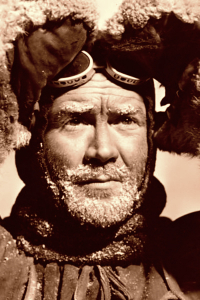
Walton is the sea captain and the main narrator of the book. Through Robert Walton, Frankenstein tells his story to the reader. During his journey to the North Pole, Robert writes letters to his sister. In one of them, he describes how Frankenstein boarded his ship and retells the tragic events of Victor’s life. With Walton’s letters, Frankenstein’s narrative begins and ends.
Robert Walton Character Analysis
Walton and Frankenstein have a lot in common. They both grew up among books, dreaming of glory and discoveries. Both characters are ambitious and determined. Walton dreams of exploring the unknown by setting his foot on a dangerous land just as Frankenstein dreams to penetrate the secrets of life and death by creating a being from the dead. Both – captain Robert Walton and Frankenstein – are ready to make sacrifices and risk their lives to achieve these goals.
When Robert first found Frankenstein in the ice of the Arctic Ocean, he almost immediately concluded, “I have found a man who… I should have been happy to have possessed… as the brother of my heart.” Walton admires Frankenstein, but what does his relation to Victor illustrate in the context of the narrative? It shows that in this male whose eyes were expressing “wildness and…madness” Robert recognized his own self. Driven by the same passion, he stood at the beginning of the path that Victor had gone through. Still, he had yet to encounter the horrors of what the pursuit of knowledge could bring.
Despite the similarities, in the end, Walton turns out to be more prudent and sensible than Frankenstein. Victor’s tragic story makes him reconsider his own ambitious moves. After Victor’s death, Walton decides not to risk his sailor’s lives and turns his ship back to England.
👰 Elizabeth Lavenza
Who is Elizabeth Lavenza?
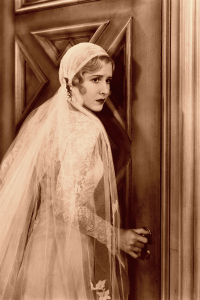
Elizabeth is an orphan girl adopted by Frankenstein’s family at a young age. She grows up with Victor and later becomes Frankenstein’s wife. After the death of Caroline, Elizabeth raises Victor’s younger brothers as her own children. On her wedding night, the Monster murders her. Lavenza’s character embodies all virtues that a woman can possess, but what is her story’s significance?
Elizabeth Lavenza: Character Analysis
Elizabeth Lavenza is a pure representation of an angel whose love and devotion to the family are absolute and limitless. She prioritizes the needs of others over her own. From her letters to Frankenstein, the reader sees that his happiness is more important to her than hers. “I, who have so disinterested an affection for you, may increase your miseries tenfold by being an obstacle to your wishes,” she writes to Victor.
Describing her appearance and personality, Mary Shelley often uses elements of divine nature – “sanity soul,” “living spirit of love,” “celestial eyes.” Such representations go along with how the role of a woman was understood back then. A woman before feminism was not more than a caring mother and a devoted submissive wife.
Although Elizabeth Frankenstein plays a key role in the narrative, her character seems less developed than those of the men. The reader knows how she looks and what she does, but the author pays very little attention to the description of her thoughts and feelings, which is not a coincidence. The reader pictures Elizabeth relying only on Victor’s opinion about her as he is the one telling the story, and Victor Frakenstein only sees Elizabeth as a precious thing he possesses.
🎭 Other Characters in Frankenstein
William Frankenstein

William is the youngest son of Alphonse and Caroline and Victor’s brother. At the age of 6, he becomes the first victim of the Monster. William Frankenstein’s death begins a series of tragedies in the family, including the execution of Justine Moritz, who was wrongfully executed for William’s murder.
William Frankenstein Character Traits
The reader learns about William Frankenstein from Elizabeth’s letter to Victor. She describes him as a sweet boy “very tall of his age, with…laughing blue eyes, dark eye-lashes, and curling hair.” Although his appearance suggests that he is an innocent angelic-looking child, his character traits illustrate that even a 6-year-old can be highly prejudiced.
William is the one who killed the Monster’s last hope to see something good in humankind. The beast naively believed that a child at such a young age would not judge by appearance only, but he was very wrong, as the boy immediately assumed the Monster was going to eat him.
Justine Moritz
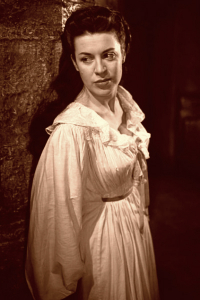
Justine Moritz is a servant girl who lived with Frankensteins after her mother rejected her. Despite her lowly background, the family loved and respected Justine. The Frankensteins treated her as a part of the household. Later, Justine was falsely accused of William’s murder and executed. Although she killed nobody, she confessed to the crime out of fear of going to Hell.
Justine Moritz: Character Analysis
Justine Moritz is introduced to the reader through Lavenza’s letter to Victor. Elizabeth describes her personality as “happy and frank-hearted.” Grateful for everything the Frankensteins did for her, Justine repays them with kindness and devotion. However, like Elizabeth herself and other women in the narrative, Justine is helpless, submissive, and very far from the ideas of feminism. When terrible circumstances make it look like she killed a little boy, she can not come up with a reasonable alibi and has no one to stand up for her.
Justine’s character represents the torment of a saint in its best tradition. Not only was she doomed to die suffering for evil deeds of others, but she also confessed to the crime she did not commit. The priest convinced her that if she did not confess, she would go to Hell, but what religion on Earth would punish an innocent creature for something she did not do?
Alphonse Frankenstein
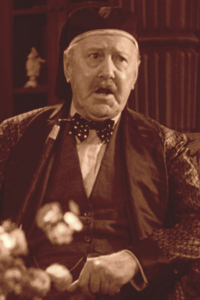
Alphonse is Victor Frankenstein’s father and the head of the household. There are four children in his family, including Elizabeth Lavenza, who is Alphonse Frankenstein’s adopted daughter. Alphonse made everything possible to make his children happy. Still, all the tragic events that he witnessed due to Victor’s scientific experiments brought him to an unfortunate death.
Alphonse Frankenstein: Character Analysis
Alphonse Frankenstein’s character is an embodiment of the importance of family ties, which he valued above all. He dedicated his entire life to caring about others. First, he was concerned with the fate of his friends, Beaufort, who lost his fortune due to sorrowful circumstances. Afterward, he took care of Beaufort’s poor daughter, Caroline, who later became his wife. Alphonse’s letters to Victor are full of concerns about Victor’s health and well-being.
Alphonse Frankenstien raised his children in love and support. He encouraged Victor’s occupation with science, wishing the best future for his son. However, little did he know that his support would result in the creation of a murderous Monster. Victor, unlike his father, did not value family connections and, though unwillingly, sacrificed them to his own glory. The Monster that he animated, killed Alphonse’s family. Unable to cope with such a tragic loss, Alphonse died of grief in Victor’s hands.
Who is Ernest in Frankenstein?
Ernest Frankenstein is Victor’s younger brother. He is the only family member who remains alive. This character plays a minor role in the book. The reader encounters his description in Elizabeth’s letter to Victor. She writes of him, “He is…full of activity and spirit. He is desirous to be a true Swiss and to enter into foreign service.”
Who is Safie in Frankenstein?
Safie in Frankenstein plays a minor role. She is the daughter of a Turkish merchant who escaped from prison. She disobeyed her father by refusing to return to Turkey. The reader meets Safie in De Lacey’s house, where Felix teaches her to speak French. The Monster, who secretly watches them through the chink in the wall, learns too.
Who is Caroline in Frankenstein?
Caroline Frankenstein is Alphonse’s wife and Victor’s mother. The author’s characterization of Caroline suggests that she is an excellent example of virtuous womanhood. Caroline is a caring daughter, a supporting wife, and a loving mother. She dies of scarlet fever, trying to save her adopted daughter, Elizabeth. Her death is the first tragedy in Frankenstein’s family.
DeLacey Family in Frankenstein
The De Lacey family is a household of three members – an old blind man and his children, Felix and Agata. About their background, the reader knows that they were exiled from France after Felix had helped Safie’s father to escape from prison. Although mentioned only in one chapter of Frankenstein, De Laceys are essential for the development of the Monster’s character. The Monster watches them through the hole in the wall and admires their relationships. What does the creature learn from this interaction? Along with getting an understanding of what love and care are, he learns to read and speak the language.
